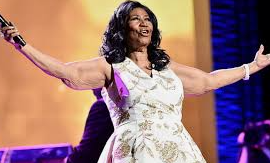In 1967, Aretha Franklin was transformed from a domestic star into an international one through the release of her version of Otis Redding’s song entitled ‘Respect’. In the years that have followed it has become an anthem for feminism and many other things, with its haunting refrain “R-E-S-P-E-C-T – Find out what it means to me”. In the early 2000s many national soccer associations picked up on the theme with their Respect campaign which aimed to “promote and educate coaches and parents on their roles in creating a fun, safe and inclusive environment for all the players” through positive role modelling, under the banner ‘We Only Do Positive’. A similar organisation, called ‘Kick It Out’, was formed in 1993, being committed to remove all forms of discrimination in sport. At the heart of it is the same message of Respect. Another organisation called ‘Sport at the Service of Humanity’ includes respect as one of its Six Principles, the others being Compassion, Love, Balance, Enlightenment and Joy. R-E-S-P-E-C-T.
In a previous article we have considered how sports players should celebrate their achievement, following on from the humble celebrations of the Ladies Singles winner at Wimbledon, in sharp contrast to the celebrations of others. Interestingly, the following day, the Men’s Singles final at Wimbledon, in which Nick Kyrgios lost to Novak Djokovic in the final also served up (forgive the pun) a situation which raises important questions about how players should behave during matches.
In fact, it seemed there was another match going on while Kyrgios was playing Djokovic – another two, in fact. The one match was between Kyrgios and himself. When points or calls did not go his way, he had a tendency to react loudly and critically, often screaming and shouting and swearing at not only officials but even incredibly also at his own support team for not helping him.
The other match was between Kyrgios and a lady spectator whom Kyrgios claimed to be “drunk out of her mind”; his description of the unsuspecting supporter was “the one in the dress, who looks like she’s had about 700 drinks bro.” He complained of the fans’ behaviour, arguing that he should not have to put up with it; yet perhaps the spectator could say the same thing. The fan can equally and fairly complain of the player’s behaviour, arguing that we should not have to put up with the abuse, swearing, tantrums of the player when things do not go his way. Respect must go two ways.
Interestingly, the spectator was actually rooting for Kyrgios. When it was pointed out to him in the news conference afterwards, he claimed that “That doesn’t make it OK to start talking to Nick Kyrgios, who’s playing a final of Wimbledon, middle of the point. Why are you trying to make that OK? What?” Well might we respond in turn that none of those points make it OK for Kyrgios to swear in front of thousands of spectators, including young children, plus millions more on television, or make blatant and equally disrespectful inaccurate accusations against a member of the public; we may ask, “why are we trying to make that OK? What?”
Of course, players like Kyrgios will no doubt argue that if spectators do not like the shouting and swearing, then we should not go to the matches. So, by that logic, if we do not like the way other people drive we should just not drive on the roads; if we do not like the way politicians run our country we should just leave the country. Really? By the same logic we could equally argue that the player who does not like to play in a tournament where such behaviour is not accepted or appreciated should just not come. He does not like to comply with the all-white dress code that Wimbledon has always had and even blatantly disregarded it by receiving the runner-up trophy wearing a red baseball hat. No-one is forcing him to play at Wimbledon. Is there mutual respect?
Kyrgios’s solution to the interaction from the spectator who was in fact supporting him? “Kick her out!” Will he kick his own support team out because they did not show their care enough to him? Yet the reverse might also be the solution to the player swearing at spectators: “Kick him out!” Kick It Out! There has to be the balance between competition and respect, for sure. The real fight is for respect in sport – respect from players and spectators alike. That must be taught and coached and modelled at schools. The ball is well and truly in our court as coaches at school. Respect.




